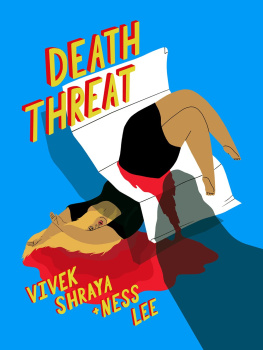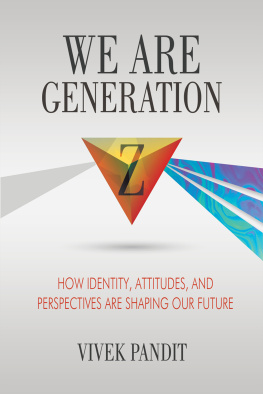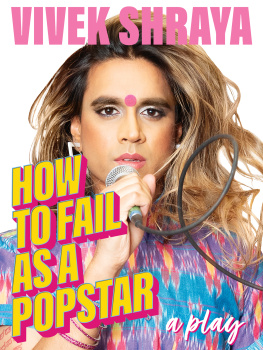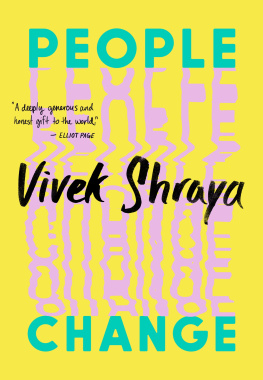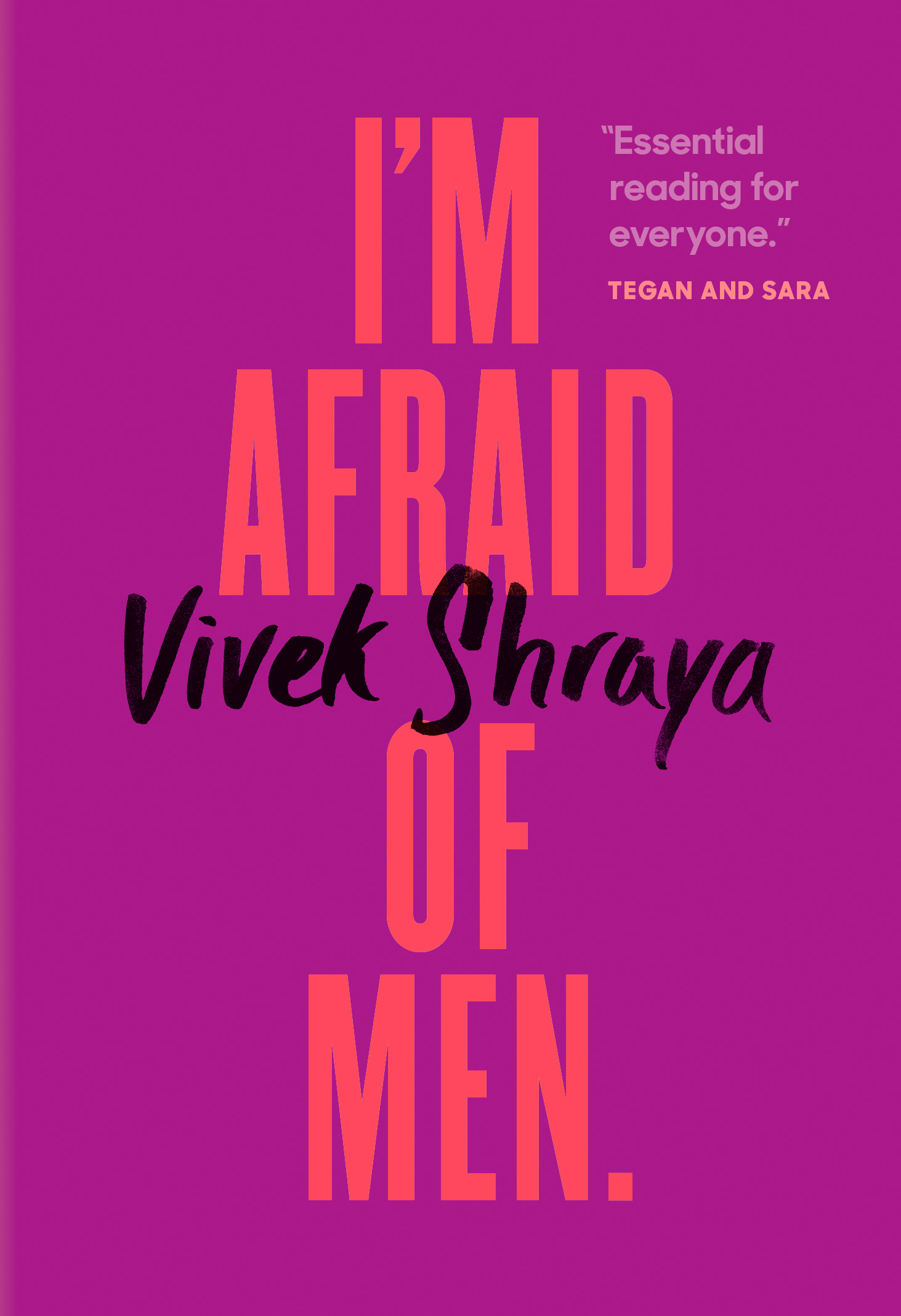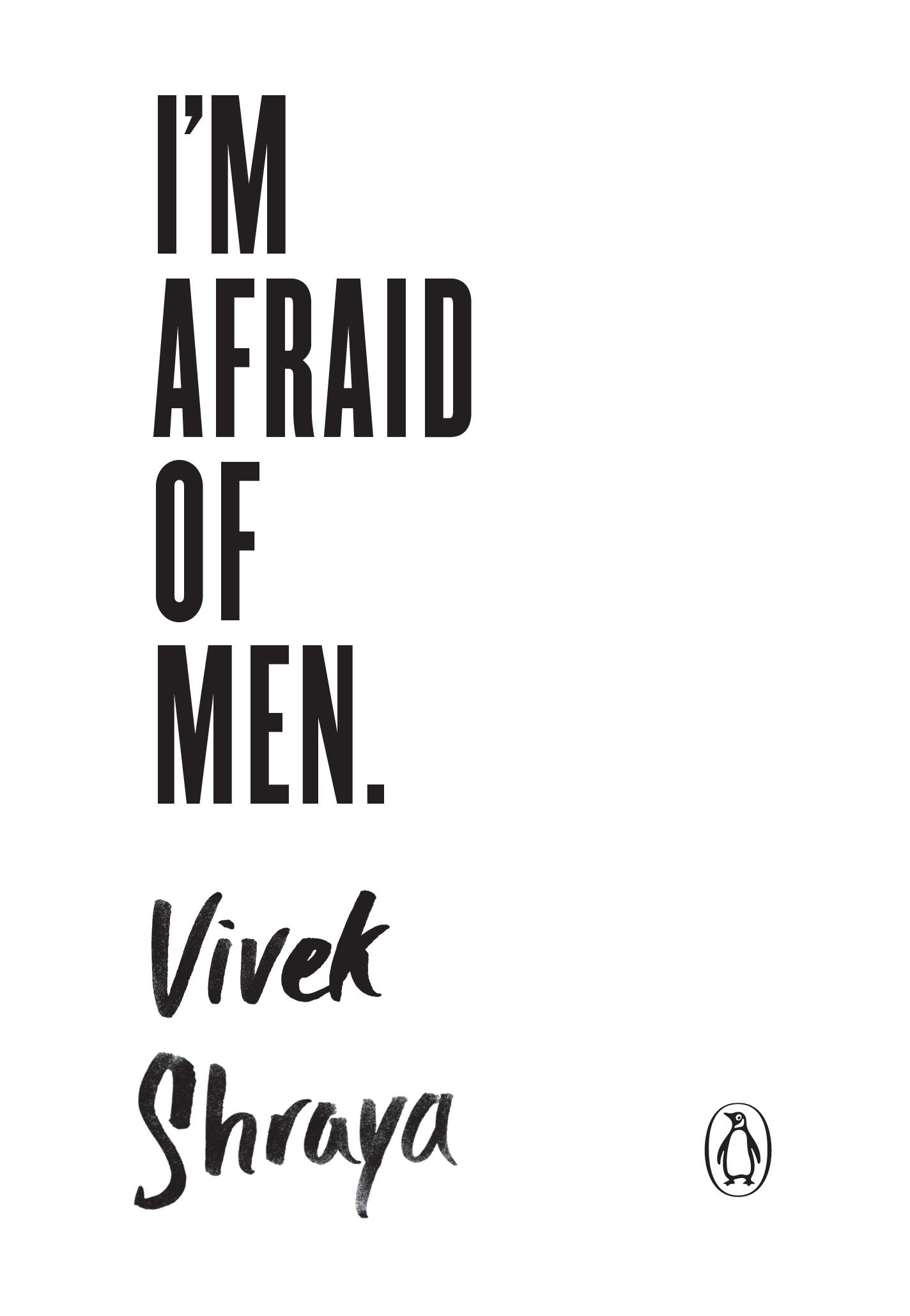Contents
ALSO BY VIVEK SHRAYA
The Boy & the Bindi
even this page is white
She of the Mountains
God Loves Hair
Contents
PENGUIN
an imprint of Penguin Canada, a division of Penguin Random House Canada Limited
Canada USA UK Ireland Australia New Zealand India South Africa China
First published 2018
Copyright 2018 by Vivek Shraya
Excerpt from Ursula K. Le Guins 1986 commencement address at Bryn Mawr copyright 1986 by Ursula K. Le Guin. Reprinted by permission of Curtis Brown, Ltd.
The excerpt on is from Joanne Tompkins and Lisa Male, Twenty-one Native Women on Motorcycles: An Interview with Tomson Highway, Australasian Drama Studies 24 (1994): 1328.
All rights reserved. Without limiting the rights under copyright reserved above, no part of this publication may be reproduced, stored in or introduced into a retrieval system, or transmitted in any form or by any means (electronic, mechanical, photocopying, recording or otherwise), without the prior written permission of both the copyright owner and the above publisher of this book.
www.penguinrandomhouse.ca
LIBRARY AND ARCHIVES CANADA CATALOGUING IN PUBLICATION
Shraya, Vivek, 1981-, author
Im afraid of men / Vivek Shraya.
Issued in print and electronic formats.
ISBN 9780735235939 (hardcover).ISBN 9780735235946 (electronic)
1. Shraya, Vivek, 1981-. 2. Transgender peopleCanadaBiography. 3. Gender expressionCanadaBiography. 4. Gender identityCanadaBiography. 5. Sex differences. 6. Masculinity. I. Title. II. Title: I am afraid of men.
PS8637.H73Z46 2018C813.6C2018-900618-8
C2018-900619-6
Ebook design adapted from printed book design by Jennifer Griffiths
Cover design by CS Richardson with Jennifer Griffiths

v5.3.2
a
For Adam.
I know that many men and even women are afraid and angry when women do speak, because in this barbaric society, when women speak truly they speak subversivelythey cant help it: if youre underneath, if youre kept down, you break out, you subvert. We are volcanoes. When we women offer our experience as our truth, as human truth, all the maps change. There are new mountains.
URSULA K . LE GUIN
I M AFRAID OF MEN because it was men who taught me fear.
Im afraid of men because it was men who taught me to fear the word girl by turning it into a weapon they used to hurt me. Im afraid of men because it was men who taught me to hate and eventually destroy my femininity. Im afraid of men because it was men who taught me to fear the extraordinary parts of myself.
My fear was so acute that it took almost two decades to undo the damage of rejecting my femininity, to salvage and reclaim my girlhood. Even now, after coming out as a trans girl, I am more afraid than ever. This fear governs many of the choices I make, from the beginning of my day to the end.
In the morning, as I get ready for work, I avoid choosing clothes or accessories that will highlight my femininity and draw unwanted attention. On the hierarchy of harassment, staring is the least violent consequence for my gender nonconformity that I could hope for. And yet the experience of repeatedly being stared at has slowly mutated me into an alien.
If I decide to wear tight pants, I walk quickly to my bus stop to avoid being seen by the construction workers outside my building, who might shout at me as they have on other mornings.
When Im on a packed bus or streetcar, I avoid making eye contact with men, so that no man will think I might be attracted to him and wont be able to resist the urge to act upon this attraction. I squeeze my shoulders inward if a man sits next to me, so that I dont accidentally touch him.
If I open Twitter or Facebook on the way to work, I brace myself for news reports of violence against women and gender-nonconforming people, whether its a story about another trans woman of colour who has been murdered, or the missing and murdered Indigenous women, or sexual assault. As important as it is to make these incidents visible by reporting them, sensationalizing and digesting these stories is also a form of social control, a reminder that I need to be afraid and to try to be as invisible as possible.
Despite the authority I have as a teacher, Im embarrassed any time a cluster of male students laughs in my classroom, fearing that I might be their joke. As a result, I often deploy self-deprecating humour throughout my lessonsif I make myself the punchline, their laughter will sting less. My hyperawareness of the men in my class, and the fact that male students tend to speak up more in discussions, make me prone to learning their names first. How might this recognition of men, however fear-based, contribute to their overall success? I leave every class repeating the names of my female students (especially the names of my racialized female students) in an effort to combat this ingrained sexism. I also become nervous when a male student asks to meet with me to challenge a grade, fearful hell get loud or even hit me when were alone in my office. Beyond managing this fear, I must also monitor how it might inadvertently result in preferential treatment.
When I have to send emails to men, including male colleagues and artists, I carefully compose each message and include several exclamation marks.
Hi Jim!
Hope you are well! Just following up on my message from two weeks ago about the broken cupboard in my unit!
Please let me know when you have time to take a look!
Thank you!
VS
Exclamation marks soften my message, modifying my tone so that my words convey the requisite submissiveness to communicate effectively with a man, to avoid agitating or offending him. I am not allowed to be assertive or direct.
When I walk to lunch and hear a man walking behind me, I move to the edge of the sidewalk so that he can pass. I used to speed up, but no matter how much I quickened my stride, I couldnt escape my anxiety. Men tend to drag their feet on the concrete, asserting their presence both spatially and sonically. But when I check over my shoulder, no one is there. Ive grown fearful of any rustle behind me.
If I have an errand at a music or camera store, I make sure Ive done my research beforehand, so that I wont have to ask one of the shaggy, bearded male staff members chatting among themselves to assist me or weather their condescension if I dont know the right model number or am unfamiliar with a particular setting. Or I just ask my boyfriend to buy my guitar strings for me. The snobbish, superior attitudes of such men have prevented me from calling myself a musician for years, even though I write songs, record albums, and tour.
When I arrive at home after work and the elevator reaches my floor, I wait to get off last so that I wont be trapped in the hallway with a man behind me, in case he tries to push me. If I have no choice but to get off first, I rush to my apartment, chased by a ghost. I dread every time I see a notice on my door, expecting it to say FAGGOT .
If I head back out in the evening for a gig, I wait in my apartment, ear to the door, until Im sure theres no one in the hallway, to avoid running into my bro neighbours while Im red-lipped and gold-adorned. Or I ask my boyfriend to walk me to the main entrance of our building. Before Uber, I would ask him to walk me to the street and help me hail a cab. I realized only after I began transitioning that my lifetime of independence and self-reliance had been largely a result of male privilege. Being a girl has required me to retrain myself to think of depending on others or asking for assistance not as weakness or even as pathetic, but rather as a necessity.




